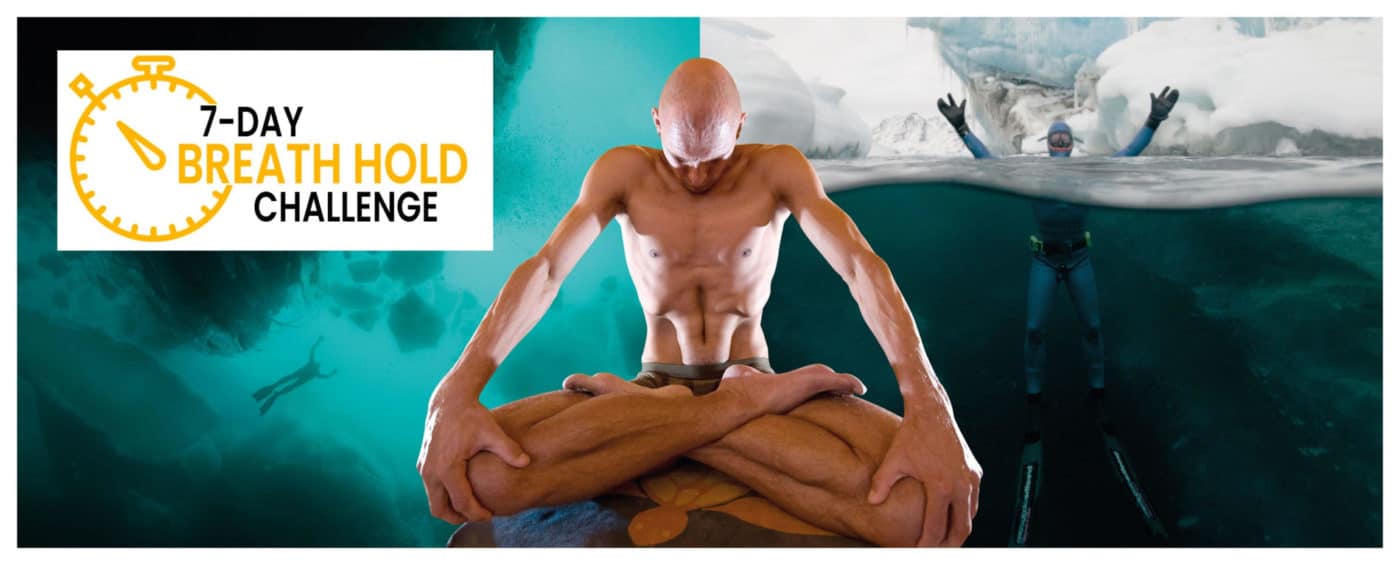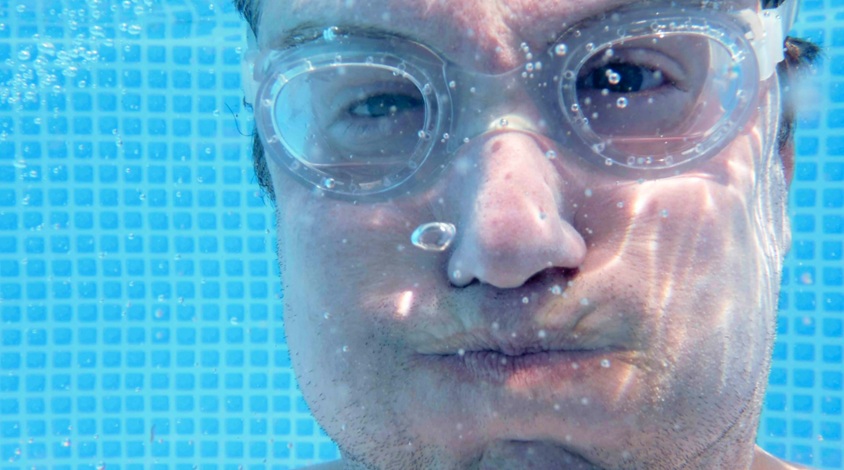Health & Rehabilitation
Can You Improve Willpower With Breath Holds?
Overview
Table of Contents
Improve Willpower with Breathing Exercises
Science shows that willpower comes in a limited supply. What if there was a way you could improve willpower (without reaching into your medical cabinet)?
You are in luck. There is one breathwork exercise that is particularly well-suited to overcome procrastination and build mental resilience.
Breath holding is one of the most effective self-control techniques that is criminally underrated. Voluntary static apnea training – the scientific term for breath hold training – is a fresh approach to willpower improvement and strengthening self-control.
When you think about it, it makes total sense. After all, if you control your breathing, the most powerful reflex in life, you control your life.
How Willpower Improves Delayed Gratification
Do you feel that you are not in control over your decisions – and as a result, your life?
Is it hard to resist temptation and have a tendency to gravitate towards immediate gratification?
Shifting your focus on willpower will help you fight that urge on long term – and here’s why it matters:
More Willpower Leads To More Success
Are you familiar with Marshmallow Experiment from 1972?
- Eat a marshmallow; or,
- Wait 15 minutes to receive two marshmallows
During this experiment, professor Walter Mischel offers two choices to a group of children:
Out of the 600 children, 67% could not fight the urge to eat the marshmallow.
More Willpower – More Money
The experiment suggested that those with enough willpower to delay the gratification would later on be more successful in life.
Later replications of the study showed that there are other factors in play (such as environment & upbringing).
It is, however, hard to deny that self-control helps you navigate away from bad decisions such as debt, unhealthy eating habits & vices such as smoking & gambling.

How Breath Holding Builds Self-Control
Is your stomach rumbling and do you fancy a marshmallow? It is totally OK.
If delayed gratification is not your thing (yet!), there is good news: willpower can be trained!
Like training your muscles, the more you challenge your willpower and succeed, the stronger it gets.
The Prefrontal Cortex: Responsible for Willpower & Self-Control
The prefrontal cortex is located in the front lobe of our brain, right behind our forehead.
It is a neat part of our brain, as it is responsible for decision-making, willpower & self-control.
Ever wondered why humans evolved from sticks & stones to circuits & code?
A highly developed prefrontal cortex!
As mammals, we still have all the other parts too.
Overcoming The Primitive Brain
That is why when you see a marshmallow, you want to eat it (if marshmallows are your thing).
We are prone to eat high carb snacks whenever we can. It is what kept us alive 100.000 years ago and thus it is still hardwired into our primitive DNA.
But thanks to our prefrontal cortex, we can make rational decisions, set goals & show restraint.
This allowed us to create an advanced logistic system of food supply that ensures our fridge is not empty.
It is the same prefrontal cortex that helps us fight the urge for immediate gratification.
Train Your Prefrontal Cortex With Breath Hold Training
Voluntary static apnea is an effective way to strengthen the prefrontal cortex.
When you hold your breath on your own volition, you control the urge to breathe.
During the breath hold, the prefrontal cortex exerts top-down control over the medulla and the pons, the parts of the brain responsible for autonomous breathing.
As the breath hold goes on, the CO2 levels continue to rise, resulting in an increased urge to breath.
To maintain the hold, it requires increased willpower and self-control techniques.
Regular breath hold training will train the prefrontal cortex like a muscle.
This will not only help you get better breath hold times. It results in benefits that help you in day-to-day life such as overcoming procrastination, more willpower and better decision-making.

More Benefits To Breath Control
Breath hold training comes with a whole slew of benefits, including increased CO2 tolerance, improved mental resilience, more energy, overcoming procrastination & better self-control.
How do all these benefits to static apnea practices result in improved willpower? Let’s find out!
Resilience to Stress
The urge to breath is regulated by an increase in carbon dioxide in the blood (not low oxygen!)
If hold our breath, we are not expelling carbon dioxide. In the mean time, it builds up as our body converts oxygen to energy (glucose) and CO2.
As you can imagine, after a few minutes, maintaining the hold becomes no easy feat.
Persisting the urge to breathe requires you to become comfortable with being uncomfortable.
And we all know: doing things that may not feel nice is a good way to build willpower!
Interoception & the Mind-Body Connection
You may think why anyone would want to breath holds if they are uncomfortable.
It is true that things are going to get tough after a while.
The moments in between – however – can be pure bliss.
When you hold your breath, it sends a signal to the brain to stop thinking so much.
And do you know what happens when you are not thinking about groceries, the missed rent payment, or the incoming deadline at work?
You have the perfect opportunity to get in touch with your body and become aware of the sensations such as your heart rate, temperature, hunger and emotions.
This awareness is called interoception and it helps with supressing indulgences.
If you have a low body awareness, you may completely misinterpret its signals. E.g. you think you are hungry, but in reality, it is just a craving that is the result of boredom or routine.
The self-control techniques you instill with breathwork help you identify what is a real need to be satisfied, and what is just wishful thinking.
Boost Self-Control With Dopamine
There has been a lot of talk about the dopamine the last few years, and with good reason.
This hormone, often dubbed the “motivation molecule”, gives a feeling of euphoria when released.
It is this reward of feeling good that creates the drive to set goals and make decisions to pursue them.
Dopamine enhances the activity in the prefrontal cortex, leading to better self-control and willpower.
And as it happens, breath hold training has a positive relation with dopamine:
- Mild Hypoxia (low O₂): Increases dopamine, leading to euphoria and alertness
- Hypercapnia (high CO₂): Stimulates VTA dopamine release, boosting focus and motivation
- Moderate stress: Enhances dopamine, while excessive stress dampens it
- Long-term apnea training: improves dopamine sensitivity, emotional control, and cognitive performance
Wonder why you feel so energized and happy after a breath hold? It’s dopamine!

Breath Holding As Ultimate Willpower Training Tool
Challenging yourself with breath holds is more than just about breaking records & bragging rights.
Breath holding is an amazing workout for the mind and for the nervous system.
Daily breath hold practice requires a few minutes a day and strengthens the prefrontal cortex.
The associated benefits of static apnea training are:
- Delay gratification and resist impulses
- Develop effective self-control techniques
- Overcome procrastination
- Increase mental resilience
How To Do Your First Breath Hold
OK – holding your breath itself is not that difficult. You won’t – however – reap the rewards if you just hold your breath for 5 seconds. There is a little more to it.
Fighting the urge to breath successfully requires a bit more thought & practice. Let’s get started!
Simple Apnea Training For Willpower
- Find a quiet place and sit down
- Breathe gently through the nose and into the belly for a few minutes
- Take an inhale and hold your breath for as long as you can
- Notice the urge to breathe but do not let go right away – you will be fine for a little while
- Exhale and recover
Repeat this practice daily and soon you will have more willpower at will.
7-Day Breath Hold Challenge
Did you enjoy the feeling – and want to know how you can push your urge to breath even further?
The 7-Day Breath Hold Challenge is a 7-day mini course that teaches various relaxation & breathing techniques to double or even triple your original breath hold time:

NOTE: Never hold your breath under water without supervision to prevent drowning!
Breatheology Courses
Learn and master conscious breathing through our online breathwork courses. Discover how simple yet powerful breathing techniques can help reduce stress, improve your mental clarity, and boost your physical performance.
Free Breathwork Courses
Kickstart your breath training journey with our free, step-by-step breathing programs designed to help you improve lung capacity, manage stress, and build focus.
Advanced Breathwork Training
Take your breathing mastery to the next level with our advanced breathwork training programs. Build resilience, enhance your endurance, and unlock greater physical and mental performance.
